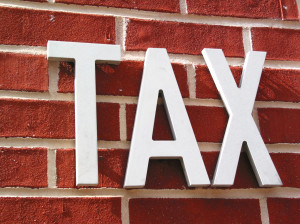 The real question most people want answered is this: Is my tax advisor doing everything (legally) possible to reduce my taxes?
The real question most people want answered is this: Is my tax advisor doing everything (legally) possible to reduce my taxes?
Without the right tax advisor, most people have the following thoughts about taxes:
- Taxes are a necessary evil
- There is no way I will ever understand my taxes
- All my hard earned money goes to pay my taxes
What is scary about falling into this type of thinking is it can lead to overpaying your taxes. The perceived complexity of the tax code plays right into how most people are taught to think about taxes – that they are just too complicated to even try to understand.
Because of this, most people don’t bother to understand how their taxes work. This can lead to dangerous results – like not knowing if their taxes are overpaid, underpaid or legally minimized.
With the right tax advisor, the thinking changes to:
- Taxes help me stay in touch with the performance of my business and investments
- I know exactly what I need to do to legally reduce my taxes
- My tax savings can supercharge my wealth building
Thinking about taxes differently is not the same as being a tax expert. You don’t have to be a tax expert. You’ll want a tax expert on your team. This is where the right tax advisor comes into play.
Below are a few key qualities I think every tax advisor should have. (I’ve shared this list before and I’m sharing it again now because I think this is essential information).
#1 Your Tax Advisor Should Ask You Questions (Lots of them)
If you have to ask all the questions, then you have the wrong tax advisor.
It is a necessity for your tax advisor to ask you a lot of questions. Questions enable your tax advisor to understand your situation and goals.
Here are just a few examples of questions your tax advisor should ask you:
- What is your role in your business or investing activities?
- What is your family’s role in your business or investing activities?
- What are your personal and professional goals?
- How do you track your expenses (not just your business and investing expenses, but ALL of your expenses)?
Remember, taxes are based on facts. The more your tax advisor understands your facts, the more opportunity there is to change your tax.
#2 Your Tax Advisor Should Reduce Your Taxes…Legally
I have been asked more than once if the tax strategies I use are legal. That is one of the easiest questions I ever get to answer – Yes.
The question indicates that there are tax advisors who will reduce your taxes by cheating.
Your tax advisor should know the tax law well enough to know how to be creative within the law, without having to bend any rules.
If your facts don’t fit within the law, then your advisor should be able to tell you what you can do differently so your facts do fit within the law.
#3 Your Tax Advisor Should Increase Your Tax Awareness
Your tax advisor should be excited to share new information with you about how to reduce your taxes and provide you with a clear understanding of the tax rules.
Understanding the rules doesn’t mean you have to be an expert on the tax rules. Your tax advisor should be the expert. Understanding the rules simply means you know what to look for so you can identify potential opportunities and discuss them with your tax advisor.
You are the one who is best able to identify potential opportunities because you are the one who is in the day-to-day activity of your business or investing and that is where the opportunities are.
While your tax advisor can identify some opportunities after-the-fact, the results are much better and faster if you are able to identify them as they occur. And quicker results most likely mean you can start reducing your taxes sooner.
This is why it’s important for your tax advisor to increase your tax awareness – once you know what to look for, it is much easier to identify your tax saving opportunities.
#4 Your Tax Advisor Should Prepare Your Tax Return
One more item to mention here is to never use a tax preparer who isn’t also your tax advisor. You may otherwise get great advice that is never used and lose out on great tax savings.
On the flip side of that, your tax advisor shouldn’t only prepare your tax return. Your tax advisor should be able to help you create and implement sound tax strategies, in addition to preparing your tax return.
Remember: The more passionate your tax advisor is about reducing your taxes, the lower your taxes will be.